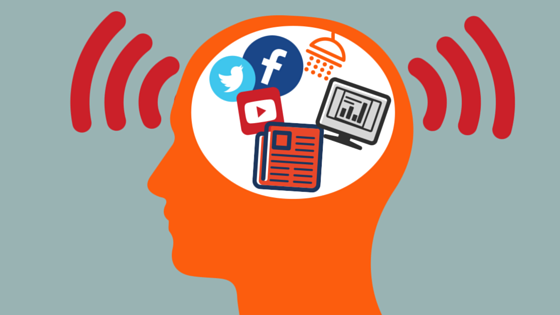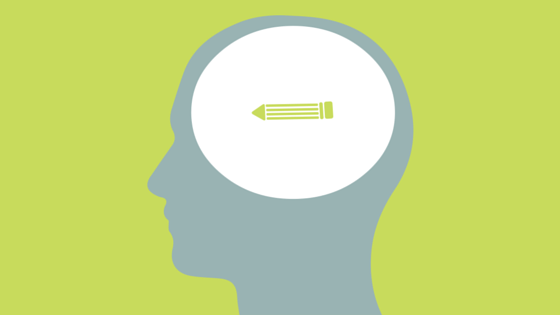
Every January, the number one New Year’s resolution made by North Americans is to improve their health. In response, the media will soon unleash a torrent of detoxes and cleanses, all promising to leave us glowing after only two weeks of consuming nothing but asparagus water. However, most of these programs completely ignore an essential aspect of our wellbeing: the mind.
As every writer knows, a healthy mind leads to clarity of thought and productive writing sessions. Wait, scratch that. As every writer knows, an unhealthy mind leads to procrastination, indecision, stunted writing sessions, and overall keyboard agony. But it doesn’t have to be this way. If your cluttered mind is holding you back from your potential–and the potential of your book–make the decision to clear your mind with these seven mental clutter cleanses. And you don’t even need a gym membership!
The Green Machine
We’ll start with an easy one. Drop what you’re doing and head out to a local green space, then simply walk. Commit to 15 minutes of unstimulated walking–that means leaving the music, podcasts, and audiobooks at home–and spend that time breathing and simply taking in your surroundings. Study the bark on the trees and the clouds in the sky, and don’t be alarmed if that 15 minutes turns into half an hour turns into an hour–like a “quick nap” that becomes a two-hour coma, this is just your mind’s way of telling you it needs rest from the constant barrage of thoughts it must process.
Difficulty: ★★
Effectiveness: ★★★
The Stimulated Subconscious
Restless nights result in a sleep debt that can only be repaid by resting our bodies. Consider the possibility that our minds also accumulate “mental energy debts” that can only be repaid by resting the mind. In this mental clutter cleanse, not only will you be resting your mind, you’ll be strengthening your subconscious.
Start your Stimulated Subconscious cleanse by focusing on one of your most problematic areas of mental clutter–say, you’re 15,000 words behind on your book, causing a slew of negative feelings like anxiety and stress that are blocking your neural tubes. Now that you’ve found your target, find a comfortable spot and enter a state of meditation (if you don’t know how, check out this guide).
This gives your mind a break from the the burden of your concerns. Next, begin the process of visualizing a future in which the source of that mental clutter is cleared. Picture yourself at your computer, typing the last sentence to your manuscript. You call a friend to tell them you’ve finished–and on time, too! You feel happy, relaxed, and excited for the future–and best of all, those negative thoughts are long gone. By practicing this visualization technique, you’ll slowly strengthen your subconscious to believe you can achieve your goals, and there is nothing that destroys mental clutter like building confidence and taking action.
Difficulty: ★★★★★
Effectiveness: ★★★★★
The Future Freer
A lot of mental clutter comes from the past. We worry about what our boss said to us last week, or that negative email from a customer. We seethe for hours about the guy who cut us off on the freeway. We even worry about that time Becky from the 6th grade said no one liked us. Fortunately, there are ways to immediately neutralize the effect of those long-held negative memories. Ryan Nicodemus of The Minimalists deals with anxiety from past experiences by running over a few questions in his head or on paper:
- Was that situation in my control?
- Is that situation relevant now?
- Could I be blowing it out of proportion?
- Does what that person said actually have validity, or were they just acting out?
In the case of Becky from the 6th grade, we can now rationalize that she had no validity in what she said, and the situation isn’t even relevant anymore. It seems obvious, but taking the time to bring this situation into perspective in the present moment can be a big help. So the next time someone fingers you on the freeway, simply say, “I feel sorry for that person–they’re clearly having a bad day. But I’m not going to let them ruin mine!” Then flash yourself a toothy smile in the rear-view mirror and forget the whole thing.
Difficulty: ★★★
Effectiveness: ★★★★
The Techno-Paleo Diet
Everything is complicated now. Our food is stuffed with ingredients we can’t even pronounce, much less identify, which is why the back-to-basics paleo diet is huge right now. But the techno-paleo diet isn’t about caveman food–it’s about caveman technology. Your brain is strained, which means its time to cut the mental additives and get back to basics. That means no iPads, no iPhones, no Macs, no Androids, no PCs, no Xbox, PS3, HDTV, N3DS. A good rule of thumb is: if you can’t pour water on it, then you can’t use it. (Books dry out, so they’re fine.) Of course, this is a pretty extreme measure, so try eliminating just one electronic device, or carving out a two-hour period in your day where you’re not allowed to touch anything that beeps or lights up. I’m willing to bet those two hours will become the best part of your day. And think about the productivity that might spring from this enforced restraint–would humans have bothered to invent fire if they’d had an Xbox to play with instead of sticks?
Difficulty: ★★★★
Effectiveness: ★★★★
The Social Media Shutout
Social media can be much loved and much hated, often at the same time by the same person. Being able to connect with friends and family is great. Filling your brain with useless clutter by scrolling through your feeds for hours on end is not. But that does not have to be the case. Jessi Hempel, a writer for Fortune, says, “Much of what is annoying about social media concerns my social media habits, not the tools themselves.” So take a long, hard look at your social media habits and ask yourself: “Am I the master of social media, or is social media the master of me?” If you said the latter, it may be time for drastic action. The good news is, you have a number of options. If you’re spending most of your social media time on the smartphone, simply uninstall your apps. If it’s on the computer, try blocking those websites for set times or install the News Feed Eradicator. If your problem is less serious, simply clean up your feeds by unfollowing dead weight on Twitter or unsubscribing to negative Nicks and Nancies on Facebook.
Difficulty: ★★★
Effectiveness: ★★★
The Media Detox
The modern person is a vacuum for information. That’s why we get sucked into media black holes–while researching material for this very piece, I came across an article on media fasts. That article linked to an article on the rising price of broccoli, which linked to an article on the American GOP, which linked to an article on Bernie Sanders, which linked to an article on–
Okay, I’m back. The point is, even small brushes with media can leave our brains reeling. Try watching the news for five minutes and see if you’re in a good mood–odds are the endless glass-half-empty stories will get you down, and being down is an awful place to be when you’re trying to write. Make the decision to stop these time-, energy-, and happiness-sucks by taking a break from media. Start by recording how much media you take in in a day–that includes news, entertainment websites, Twitter updates, and articles on media detoxes (except this one of course). Then ignore all those sources for a week or two and see how you feel. At the end of the detox, think long and hard about the media that you actually miss–the excellent op-eds that inspire your writing, the YouTube series on fascinating historical characters, or the podcast that tells you what’s going on in the world without bumming you out. And if you shed a few sources, great! You didn’t need BuzzFeed or Gawker anyway.
Difficulty: ★★★
Effectiveness: ★★★★
The Dirty Desk Destroyer
I’ve given you some pretty challenging mental clutter cleanses here, but I can assure you they’ll repay the effort you apply. In fact, the more effort you make, the better you’ll feel. But I would like to finish with a relatively easy cleanse: the Dirty Desk Destroyer. Messy desks can kill productivity by taking up mental processing power. Even seeing that mess in your peripheral vision can be enough to stress and slow down the functioning of your brain. Fortunately, there’s an extremely easy solution:
Step 1: Remove computer, potted plants, and open beverages from desk.
Step 2: Lay arm across far side of desk.
Step 3: Sweep arm across desk until desk is bare.
Step 4: Replace computer, potted plants, and beverages. Well done! Just mind the pile on the floor as you walk away.
You may not want to make as sweeping a gesture as this, but the end result should be the same (minus the messy floor). Just take a few minutes to clear your workspace of dirty mugs, loose paper, garbage, and anything else that has no place in a productive setting. Then sit down, take a deep breathe, and let the mental clutter drain away. Smile, open up your manuscript, and get to writing.
Difficulty: ★
Effectiveness: ★★★★★
- Lindsay Sealey’s Growing Strong Girls Gives Hope to Parents Under Pressure - September 7, 2017
- What I Learned About Confidence from Writing Growing Strong Girls: A Guest Post from Lindsay Sealey - September 7, 2017
- LifeTree’s Summer Reads - August 17, 2017
